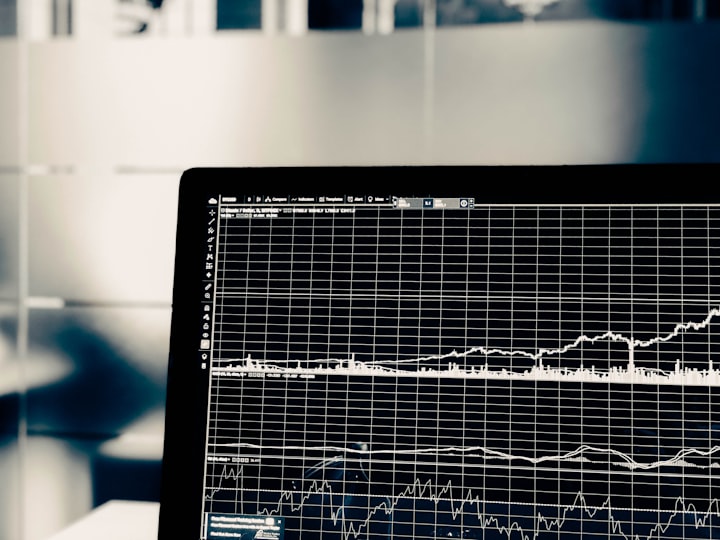The Hidden Dangers of High Blood Pressure: Unveiling the Silent Killer
Unmasking the Silent Killer: The Unseen Dangers of High Blood Pressure

Introduction
High blood pressure, also known as hypertension, is a prevalent health condition that affects millions of people worldwide. Often referred to as the "silent killer," hypertension typically presents no symptoms but can have devastating effects on our overall health and well-being. In this article, we will delve into the various aspects of high blood pressure, including its definition, causes, and the potential risks associated with its presence. By shedding light on this often-overlooked condition, we hope to raise awareness and encourage individuals to take proactive steps in managing their blood pressure levels.
Understanding Blood Pressure
Blood pressure is a vital indicator of our cardiovascular health. It measures the force exerted by blood against the walls of our arteries as the heart pumps it through our circulatory system. It is typically represented by two numbers: systolic pressure over diastolic pressure. The systolic pressure reflects the force when the heart contracts, while the diastolic pressure represents the force when the heart is at rest between beats. Blood pressure is measured in millimeters of mercury (mmHg).
Normal blood pressure is considered to be around 120/80 mmHg. However, when blood pressure consistently exceeds this range, it is classified as high blood pressure or hypertension. Hypertension is generally categorized into two types: primary (essential) and secondary hypertension. Primary hypertension accounts for the majority of cases and develops gradually over time, often due to lifestyle factors and genetic predisposition. On the other hand, secondary hypertension is caused by an underlying health condition, such as kidney disease or hormonal disorders.
The Negative Consequences of High Blood Pressure
1. Cardiovascular Disease: High blood pressure significantly increases the risk of developing cardiovascular diseases, including coronary artery disease, heart attacks, and strokes. The elevated pressure damages the delicate lining of the blood vessels, promoting the accumulation of plaque and the narrowing of arteries. This, in turn, restricts blood flow and oxygen supply to vital organs, increasing the workload on the heart and potentially leading to severe complications.
2. Organ Damage: Hypertension can cause damage to various organs, such as the heart, brain, kidneys, and eyes. Over time, the strain on the heart can result in heart failure, an enlarged heart, or irregular heart rhythms. In the brain, high blood pressure can lead to cognitive decline, dementia, or even strokes. Similarly, the kidneys may suffer from impaired function or chronic kidney disease, while the eyes may be affected by vision problems or hypertensive retinopathy.
3. Increased Risk of Diabetes: Research suggests a strong association between hypertension and the development of type 2 diabetes. The mechanisms linking the two conditions are complex and multifactorial, involving insulin resistance, inflammation, and hormonal imbalances. However, the underlying message is clear: high blood pressure should not be underestimated as it can potentially trigger or worsen the onset of diabetes, further exacerbating health complications.
4. Impact on Mental Health: Studies have indicated a link between high blood pressure and mental health disorders such as anxiety and depression. The exact relationship between these conditions is still being explored, but it is believed that the physiological changes associated with hypertension, along with the stress of managing a chronic condition, can contribute to the development or worsening of mental health issues. It is essential to address the psychological well-being of individuals affected by hypertension as part of a comprehensive treatment approach.
5. Complications during Pregnancy: Pregnant women with high blood pressure face an increased risk of complications, including preeclampsia, gestational diabetes, premature birth, and low birth weight. These complications not only endanger the health of the mother but also affect the long-term well-being of the child. Proper prenatal care and monitoring blood pressure levels are crucial for
the early detection and management of hypertension during pregnancy.
Prevention and Management
Fortunately, there are several steps individuals can take to prevent or manage high blood pressure:
1. Lifestyle Modifications: Adopting a healthy lifestyle can play a pivotal role in preventing and managing hypertension. This includes maintaining a balanced diet rich in fruits, vegetables, whole grains, and lean proteins while limiting sodium, saturated fats, and added sugars. Regular physical activity, such as aerobic exercise and strength training, is beneficial for cardiovascular health. Avoiding tobacco use and limiting alcohol consumption are also essential.
2. Medications: In cases where lifestyle modifications alone are insufficient, healthcare professionals may prescribe medications to help control blood pressure. These medications work in various ways, such as diuretics to reduce fluid volume, beta-blockers to decrease heart rate, or ACE inhibitors to relax blood vessels. It is important to follow medical advice, take prescribed medications as directed, and regularly monitor blood pressure levels.
3. Regular Check-ups: Routine medical check-ups are vital for monitoring blood pressure and detecting any early signs of hypertension. Timely identification allows for proactive intervention and lifestyle modifications before the condition worsens. Regular monitoring is especially crucial for individuals with a family history of hypertension or those at higher risk due to other health conditions.
4. Stress Management: Stress can contribute to elevated blood pressure levels. Engaging in stress management techniques, such as meditation, deep breathing exercises, yoga, or engaging in hobbies and activities that promote relaxation, can help mitigate the impact of stress on blood pressure.
Conclusion
High blood pressure is a serious health condition that affects a significant portion of the population worldwide. Its insidious nature and lack of symptoms make it essential for individuals to prioritize regular blood pressure monitoring and adopt a healthy lifestyle. By understanding the risks associated with hypertension, we can take proactive steps towards prevention, early detection, and effective management, thereby reducing the burden of this silent killer on our overall health and well-being. Remember, knowledge is power, and staying informed is the first line of defense against the detrimental effects of high blood pressure.
Some Products for you






Comments
There are no comments for this story
Be the first to respond and start the conversation.